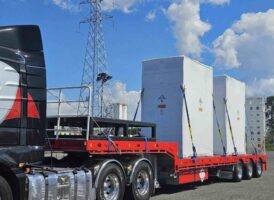The pipeline of battery storage projects across the United Kingdom has reached 16.1GW, according to the latest estimates by RenewableUK, the country’s trade association for wind, wave and tidal, and energy storage.
RenewableUK’s latest Energy Storage Project Intelligence report identifies 729 battery storage projects across the United Kingdom either in operation, under construction, or in various stages of planning. The length of storage, in GWh or MWh, was not provided as many of the projects will not have finalised their plans.
The number is up from 600 battery storage projects counted in the last report in December 2019, when there was only a pipeline of 10.5GW, and just 2MW in 2012.
The UK’s battery storage development has already begun to show improvement after legislation was passed in December 2020 giving local planning authorities the authority to determine projects with a capacity of over 50MW in England and over 350MW in Wales.
Previously, projects of these sizes were determined by the UK’s central government, which RenewableUK showed made the process longer and more complex, imposing an artificial ceiling on the capacity of battery storage projects.
Since December, RenewableUK has already identified three separate projects which have been submitted for determination by local planning authorities, each of which with a capacity of 100MW.
“This is our deepest dive ever into the state of play in the UK’s innovative energy storage sector, revealing more comprehensive statistics than anyone has published before,” said Barnaby Wharton, RenewableUK’s Director of Future Electricity Systems.
“We’re already seeing grid-scale batteries of 50MW being built, providing valuable flexibility to the grid, and we expect many projects with an even larger capacity will be submitted into the planning system following the removal of the 50MW cap.
“There’s no doubt that the energy storage market will continue to grow as we scale up using a variety of innovative technologies – not just lithium batteries but also flywheels, compressed air, liquid air and gravity-based storage.
“This cutting-edge technology is another example of how the UK is a world leader in building modern power systems. However, many of our projects need access to capital at a lower cost and more stable revenues.
“We’re hoping that the forthcoming update to the Smart System and Flexibility Plan will set out how the Government envisages making revenue streams for storage projects clearer.
We also need a stable network charging regime and a long-term vision for the sector to encourage further investment by cutting-edge companies.”
The report also identified an additional 6GW of energy storage projects in operation, under construction, or being planned from other technologies, including liquefied and compressed air, pumped hydro, flywheels and gravity-based technology.











